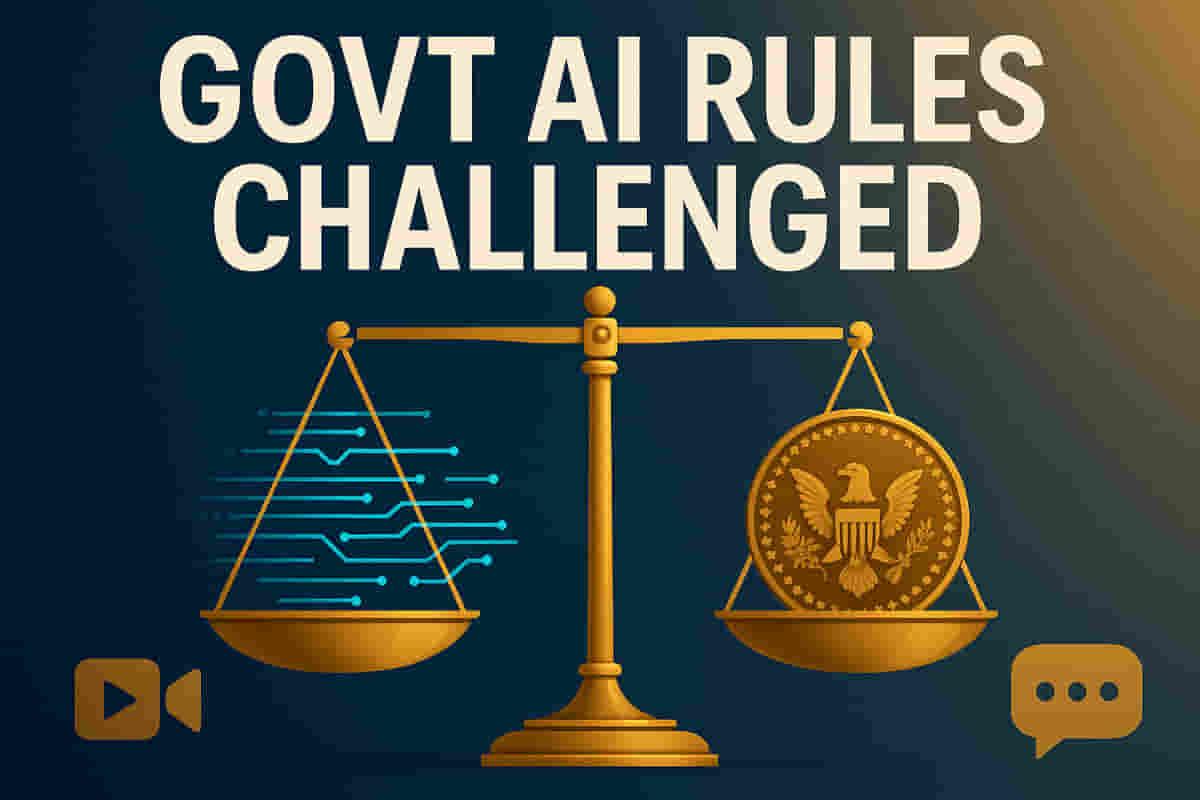Indian Government's Proposed IT Rules for AI Content Face Legal Challenge Over Executive Power
Tech
|
1st November 2025, 7:02 AM

▶
Short Description :
Detailed Coverage :
The Indian government, through the Ministry of Electronics and Information Technology (MEITY), has proposed significant amendments to the Information Technology (Intermediary Guidelines and Digital Media Ethics Code) Rules, 2021, aimed at tackling the risks posed by synthetic and AI-generated content. These draft amendments, released for public comment, mandate that all online intermediaries ensure synthetically generated information is visibly labeled or carries embedded metadata identifiers. Intermediaries must disable access to such content if these identifiers are missing.\n\nFurthermore, Significant Social Media Intermediaries (SSMIs) will be required to verify user declarations about content being synthetically generated, using technical means to confirm accuracy before displaying it. Content must be labeled as synthetic after verification.\n\nHowever, these proposed changes have ignited a debate regarding constitutional validity and the scope of executive power. Critics argue that these amendments introduce substantive legal duties, effectively rewriting aspects of the Information Technology Act, 2000, under the guise of delegated legislation. The Information Technology Act, 2000, Section 79, provides intermediaries with immunity (safe harbour) from liability for third-party content, provided they remain neutral and act upon knowledge of illegality. The proposed rules, by imposing verification and labeling duties, are seen by some as transforming intermediaries into content verifiers and regulators, which may violate the principle of neutrality and go beyond the executive's rule-making authority granted under Section 87 of the Act.\n\nThere is a concern that these mandates could amount to a form of pre-publication censorship, infringing on the right to free speech guaranteed under Article 19(1)(a) of the Constitution, as such restrictions should ideally be enacted by Parliament through amendments to the primary Act rather than through subordinate rules.\n\nImpact:\nThis news impacts the Indian stock market and Indian businesses by potentially creating regulatory uncertainty for technology and social media companies operating in India. Companies may face increased compliance costs and legal challenges. The debate highlights a tension between regulating emerging technologies and upholding constitutional principles, which could influence future digital policy and investment sentiment in the Indian tech sector. The outcome could lead to either a revised regulatory framework that companies must adapt to, or a potential legal challenge that delays or alters the implementation of these rules.\nImpact Rating: 7/10\n\n**Definitions of Difficult Terms:**\n\n* **Delegated Legislation**: Rules or regulations created by an executive authority, such as a government ministry, under powers granted by a primary Act of Parliament. It is meant to supplement and implement the parent law, not to change its fundamental principles.\n* **Information Technology Act, 2000 (IT Act)**: The primary law in India that governs cybercrime and electronic commerce. It provides the legal framework for digital transactions, data protection, and the liabilities of internet intermediaries.\n* **IT Rules 2021**: The Information Technology (Intermediary Guidelines and Digital Media Ethics Code) Rules, 2021, which were framed under the IT Act, 2000, to provide guidelines for intermediaries and digital media platforms.\n* **Intermediary**: An entity that acts as a conduit for information, such as internet service providers, social media platforms, and online marketplaces. They generally have limited liability for user-generated content under certain conditions.\n* **Section 79 of the IT Act**: This section provides 'safe harbour' protection to intermediaries, exempting them from liability for third-party data or content hosted on their platforms, provided they adhere to certain due diligence requirements and act upon notice of illegal content.\n* **Section 87 of the IT Act**: This section grants the Central Government the power to make rules to carry out the provisions of the IT Act, including setting guidelines for intermediaries under Section 79(2).\n* **Significant Social Media Intermediaries (SSMIs)**: A category of intermediaries designated by the government based on user base size and impact, subject to additional compliance obligations under the IT Rules.\n* **Safe Harbour**: A legal provision that shields individuals or entities from liability under specific circumstances, often related to hosting or transmitting third-party content.\n* **Post facto**: Latin for 'from after the event'. In this context, it refers to a diligence regime where intermediaries act after they become aware of unlawful content.\n* **Ex ante**: Latin for 'from before the event'. In this context, it refers to a verification or review process that occurs before content is published or displayed.\n* **Article 19(1)(a) of the Constitution**: A fundamental right in the Indian Constitution that guarantees freedom of speech and expression to all its citizens.